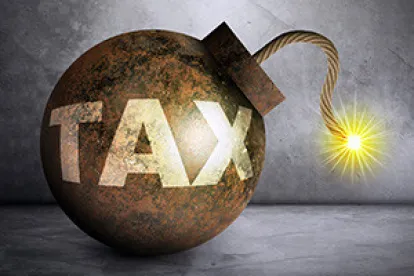There is considerable confusion over the difference between a tax lien and a tax levy, including the impact that one or the other may have on the taxpayer. To protect your assets and your rights, it is important to understand the difference between these two collection actions often used by the IRS to collect on a federal tax debt.
The Federal Tax Levy
A tax levy is a legal seizure of your property to satisfy a tax debt. Levies are different from liens. A lien is a legal claim against your property that secures the government's interest in your property when you don't pay your tax debt to secure payment of that tax debt. A levy actually takes the property to satisfy the tax debt. If you don't pay or pursue other collection alternatives to satisfy your tax debt, the IRS can levy, seize and sell any type of real or personal property that you own or in which you have an interest. Before the IRS can issue a levy on your income, financial assets or other real/personal property, the IRS must issue you a Final Notice of Intent to Levy (Letter 1058 or Notice LT11) that provides you with the opportunity to request a collection due process hearing and potentially avoid the tax levy. Do NOT ignore this notice. If you do not file a timely request for a collection due process hearing, you not only lose important appeal rights but also risk losing your hard-earned income and assets.
The Federal Tax Lien
A federal tax lien comes into existence when the IRS assesses a tax against you, sends you a bill (Notice and Demand for Payment) and you fail to pay the tax liability in full by the demand date. When this occurs, and to perfect its interest among other creditors, the IRS files a Notice of Federal Tax Lien to put other creditors on notice that the government has a legal right to your property (real and personal). The tax lien will attach to all property and assets that you own at the time the lien is filed and that you thereafter acquire. The Notice of Federal Tax Lien is a public filing and it will impact your credit.
You do have rights to appeal the lien filing. First, if the IRS advises you of its intent to file a Notice of Federal Tax Lien before it is filed, you have appeal rights under the CAP program. If the Notice of Federal Tax Lien has already been filed, then you have appeal rights under the collection due process provisions.
The IRS offers several options to get rid of a Federal Tax Lien. Those options include:
-
Pay the tax liability in full. Once paid in full, the federal tax lien will generally be released by the IRS within 30 days.
-
Apply for a Certificate of Discharge. If granted, this will remove a specific piece(s) of property from the effects of the federal tax lien which could allow you to sell the property free and clear of the tax lien. There are several provisions in the Internal Revenue Code that determine eligibility for discharge. You should speak with a tax attorney to understand how these provisions may apply to your situation.
-
Apply for a Certificate of Subordination. A subordination does not remove the lien but it may make it easier for you to get a loan or a mortgage on a piece of property in which the government has claimed an interest.
-
Apply for a Withdrawal of the Notice of Federal Tax Lien. A withdrawal will remove the public notice of the tax lien filing. There are several provisions in the Internal Revenue Code that determine eligibility for a withdrawal. In addition, there are additional options that were provided for under the Commissioners Fresh Start Initiative. You should speak with a tax attorney about your options for withdrawal of the federal tax lien.
Avoiding the Federal Tax Lien and/or Federal Tax Levy
The best course of action to avoid a federal tax lien and/or a federal tax levy is to file and pay all of your taxes in full and on time. If you cannot file or pay on time, DO NOT ignore the letters or correspondence from the IRS. There are options that may be available to you to resolve your tax debt and avoid a tax lien filing or avoid a tax levy on your income and assets.



 />i
/>i

